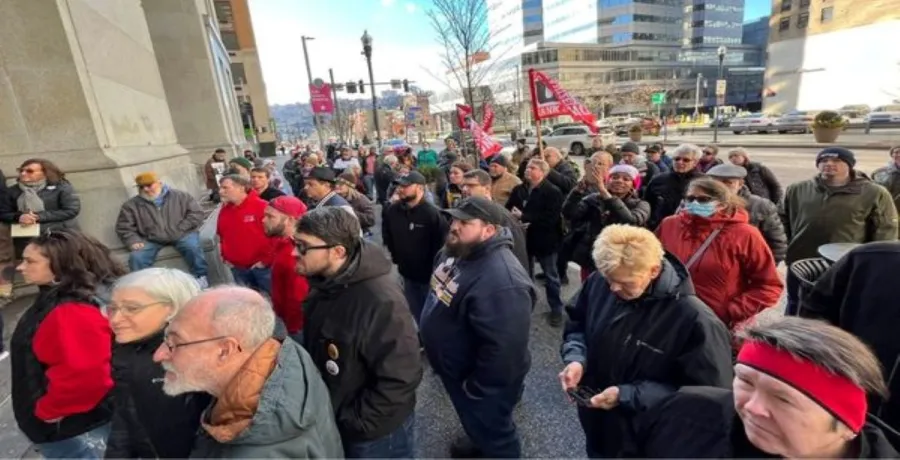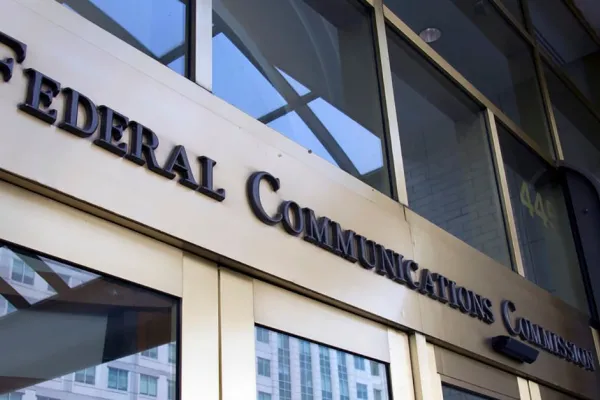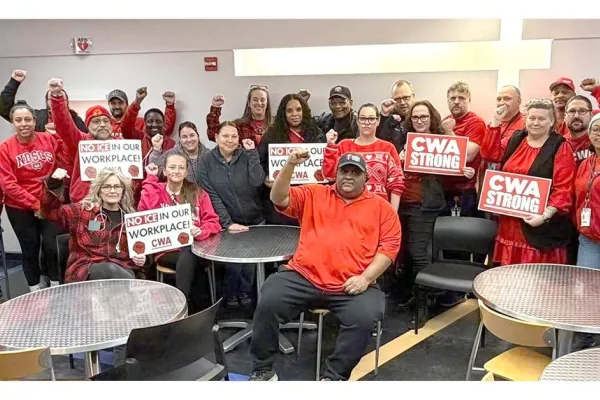Bargaining Update: Pittsburgh Post-Gazette 100 Days

Last week, CWA mailers, typographers, and journalists, along with members of the Teamsters and Pressmen’s Union GCC/IBT, marked over 100 days on strike at the Pittsburgh Post-Gazette with a rally outside the City-County Building. They were joined by union members, community stakeholders, and other supporters. The workers are also receiving an outpouring of solidarity online and from elected officials such as Congressman Chris Deluzio, who spoke on the house floor in support of the striking workers.
The striking NewsGuild-CWA journalists won a major victory last Friday when Judge Geoffrey Carter, a National Labor Relations Board administrative law judge, ruled overwhelmingly that Post-Gazette management and representatives have bargained in bad faith since 2017 and, in doing so, violated the National Labor Relations Act. The Post-Gazette was ordered to end the impasse that the company unilaterally declared in July 2020, to undo changes to working conditions that the company imposed in 2020, to restore the union contract, and to begin bargaining within 15 days of the union’s request to do so. Additionally, the judge ordered the Post-Gazette to compensate workers who lost wages or benefits caused by the illegal imposition of conditions in 2020.
Block Communications, the Post-Gazette’s parent company, is also facing an unfair labor practice charge filed by the Toledo NewsGuild, TNG-CWA Local 34043, on behalf of a reporter at the Toledo Blade, another newspaper owned by Block, who was allegedly forced to perform work for the Pittsburgh Post-Gazette. The charge claims that Block forcing an employee to cross a picket line explicitly violates the terms and conditions of the collective bargaining agreement currently in effect.
The NewsGuild-CWA is also raising concerns about Block Communications' announcement that it is purchasing Pittsburgh City Paper. TNG-CWA President Jon Schleuss has asked the U.S. Department of Justice (DOJ) to investigate the consolidation of Pittsburgh’s local news market. “It will harm the community by reducing points of view on key issues,” writes Schleuss in a letter to the DOJ. “It will also distort the local labor market for news workers by restricting the mobility of news employees,” he added.
CWA and Allies File Comments Supporting FCC Oversight of Voice Service in the Internet Age
Legacy T and Activision Members Meet With CWA President Cummings in Minneapolis


